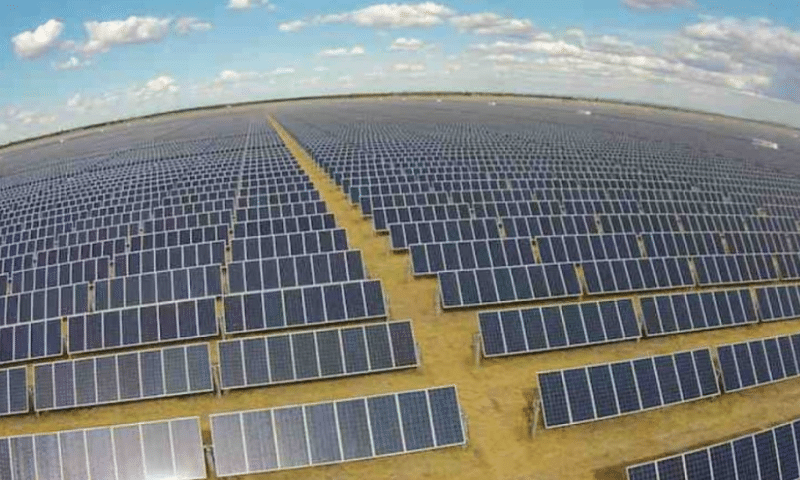
So, you finally have solar panels installed on your roof, what now? As the panels generate solar energy and power your home, you also need to think about maintaining your solar panels. Solar panels require little maintenance, though knowing how to do it right will save you time and money!
Thinking about going solar or considering an upgrade to your existing solar panel system? Energy Matters offers a hassle-free way to explore your options. Get FREE solar quotes from Energy Matters to discover how you can harness even more clean energy for your home. It’s a simple step that can make a significant impact on your energy savings and environmental footprint.
The importance of solar panel maintenance
Regular maintenance is important for your solar system as it ensures that your system maintains efficiency and operates safely. Over time, debris and dust will accumulate on your solar panels, which may affect how they run. Additionally, weather elements, such as water, hail, wind, and see page can cause damage to your system.
Although dirty solar panels don’t necessarily mean they’re dangerous, they may be less efficient. A damaged system, however, can pose a safety risk.
There is a small risk of solar panel fires. In 2020 there were 50 fires initially reported across Australia. Even though solar panels have yet to make it to the top 10 fire risks for households in the nation, with the increase in the number of solar panel installations it’s best to practice prevention as early as now. An effective way to do this is to increase the awareness of homeowners regarding their solar systems’ maintenance schedule.
Solar panel maintenance will ensure the system is safe for everyone on the property. This will also ensure the solar system’s performance is maintained at the right levels. In addition to this, maintaining the system might be required to maintain the warranty of the system. Failure to maintain the system might void the warranty. We recommend reading the PDS of each of your system’s components (such as the solar panels and the inverter) to ensure that you are following their policy requirements. Speak with your solar installer if you are ever unsure.
How often should you conduct solar home maintenance?
The Clean Energy Council (CEC) recommends a yearly solar maintenance schedule to ensure the system is safe and running efficiently. The quality of your solar system and the reliability of your monitoring system also play crucial roles in the frequency of your solar panel maintenance.
You can track your system’s performance with a high-quality monitoring system. From there, you can get alerts and notifications that will help ensure your solar system is running in good condition.
How to monitor the health of your solar panels?
Integrating a solar panel monitoring system into your existing setup will enable you to track the amount of energy your solar panels produce on that day and over time. Being able to see this will help you determine any external factors that affect your solar panels’ efficiency. You will also be alerted if the system breaks or malfunctions. Most of the current solar inverters come with their own monitoring system that your solar installer will assist you in setting up.
In the event that your inverter does not have its own monitoring system, we recommend speaking with a solar installer to have one installed.
What are the solar panel maintenance tips to keep in mind?
Whether you maintain your solar panels once a year or every five years, it won’t really take much effort. You can assess the system from the safety of the ground and you only need a garden hose and a leaf blower to clear away any debris and give your panels a light clean.
Use the leaf blower to eliminate debris, dust and other elements on your solar panels, and spray them with a garden hose—that’s it! However, going up on your roof is in no way recommended for safety reasons. We highly recommend hiring a solar panel cleaning professional to ensure that your system is cleaned thoroughly.
If you find that there is damage to your system, or it is not performing as expected, it may be time to call in a professional.
Who conducts solar panel maintenance?
A licensed electrician, or a CEC-accredited solar panel system installer, is the best person to conduct solar panel maintenance. This is because your solar system can potentially be dangerous; therefore, you need a licensed professional to do the maintenance and inspection instead.
You can also ask your solar installer to do it for you because they already know everything about your system. However, it won’t hurt to gather several solar quotes from a few companies before you make your final decision.
DIY-ing solar panel maintenance is also an option; however, it isn’t recommended when you’re not licensed or experienced. Going up the roof can be dangerous, and there are components that must be inspected as well during the process. Attempting to fix any issues yourself might also void your product warranty.
What to expect from solar panel maintenance?
When you have solar panel maintenance conducted, you can expect clean and secure panels with no deteriorated or corroded parts. Additionally, the vents will be cleared of debris and other elements. You can also ensure that the wiring, switches, fittings, and cables are all securely attached.
Maintaining your system will ensure that your system performs efficiently for years to come.
Energy Matters has over 17 years of experience in the solar industry and has helped over 40,000 Australian households in their journey to energy independence.
Complete our quick Solar Quote Quiz to receive up to 3 FREE solar quotes from trusted local installers – it’ll only take you a few minutes and is completely obligation-free.
Our professional solar installers Brisbane will assess and determine your energy needs. We customise a solar panel system in Brisbane to fit the roof size of your property, ensuring you receive the most suitable solar panel system for your Brisbane home, meeting to property’s energy requirements.







































